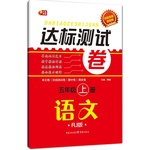题目内容
We call the Chinese New Year the Spring Festival. There is a name for each Chinese year. We may call it the year of the sheep, the year of the monkey or the year of the dog. And this year is the year of the tiger.
Before New Year’s Day, people are busy shopping and cleaning their houses. On New Year’s Eve, there is a big family dinner. After dinner, the family don’t go to sleep to welcome the New Year. On the first day of the New Year, people put on their new clothes and go to visit their friends and relatives. They say “Happy New Year” and some other greetings (问候) to each other. People usually have a very good time during the festival.
小题1:How many Chinese festivals are mentioned(谈到) in this passage(段)?
小题2:We can find every Chinese year has ________ name.
小题3:How do Chinese people usually spend New Year’s Eve?
小题4:On New Year’s Day, people say “_______” to each other when they meet
小题5:The best title (题目) for this passage (文章) is ______.
Before New Year’s Day, people are busy shopping and cleaning their houses. On New Year’s Eve, there is a big family dinner. After dinner, the family don’t go to sleep to welcome the New Year. On the first day of the New Year, people put on their new clothes and go to visit their friends and relatives. They say “Happy New Year” and some other greetings (问候) to each other. People usually have a very good time during the festival.
小题1:How many Chinese festivals are mentioned(谈到) in this passage(段)?
| A.One | B.Two | C.Three | D.Four |
| A.an animal | B.a pet | C.a family | D.a full |
| A.They put on new clothes. |
| B.They visit their friends and relatives. |
| C.They are busy shopping and cleaning their houses. |
| D.They have a big dinner and wait to welcome the New Year. |
| A.Merry Christmas | B.Glad to meet you |
| C.Happy birthday to you | D.Happy New Year |
| A.Good time | B.The Spring Festival |
| C.Big Dinner | D.The Year of the tiger |
小题1:A
小题2:A
小题3:D
小题4:D
小题5:B
小题1:理解归纳题,纵观全文理解可知。
小题2:细节理解题,根据文中语句“There is a name for each Chinese year. We may call it the year of the sheep, the year of the monkey or the year of the dog. And this year is the year of the tiger.”理解可知。
小题3:细节理解题,根据文中语句“On New Year’s Eve, there is a big family dinner. After dinner, the family don’t go to sleep to welcome the New Year.”理解可知。
小题4:细节理解题,根据文中语句“They say “Happy New Year” and some other greetings (问候) to each other.”理解可知。
小题5:细节理解题,根据文中语句“We call the Chinese New Year the Spring Festival.”理解可知。

练习册系列答案
 星级口算天天练系列答案
星级口算天天练系列答案 芒果教辅达标测试卷系列答案
芒果教辅达标测试卷系列答案
相关题目